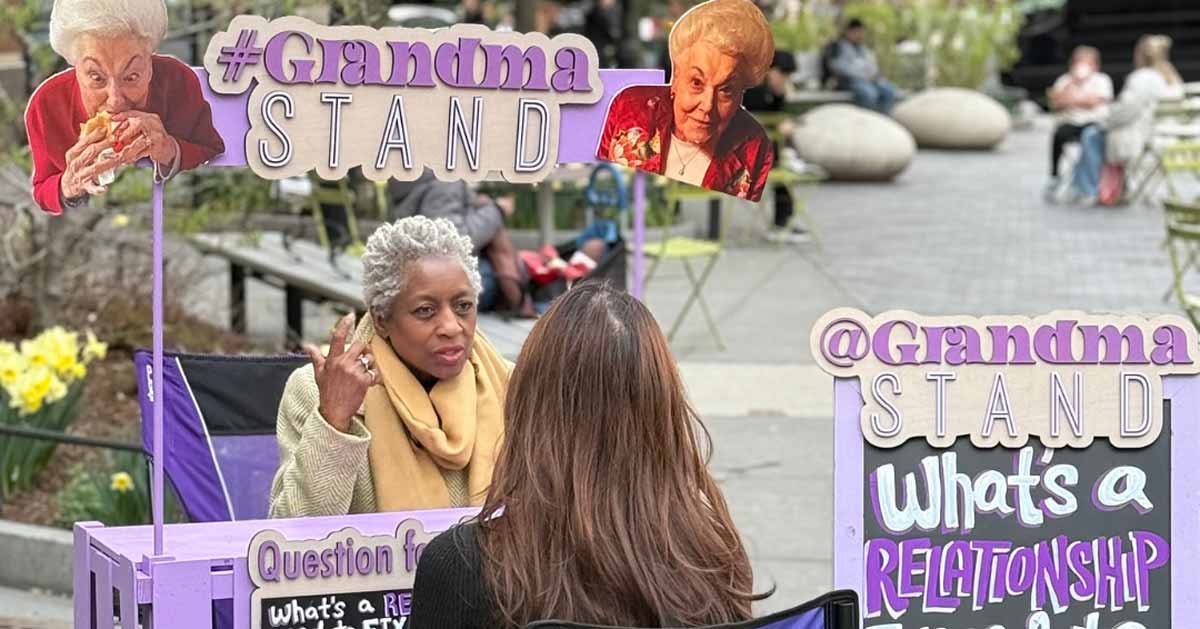It’s hard to avoid existentialism when we think about the passage of time. Will we do enough with our lives? How long will our beauty and energy last? Will we be surrounded by loved ones when we grow old?
The fear of aging is an ironic (and very Western) concern, seeing as aging and dying are the only things all humans have in common. In many cultures, old age is an irreverent status, as elders offer invaluable wisdom and acumen.
However, for many Americans — especially American women — aging is seen as something to mourn.
Older bodies and faces are increasingly devalued, as people associate age with decreased health, regeneration, or energy. Sure, aging indeed comes with natural health considerations, but the lack of value or appreciation for aging is a byproduct of a culture enamored with youth.
Ingrid Fettell Lee, a writer and designer obsessed with joy, believes that aging has become a new task for women, forcing them to do so with grace and appropriateness, to slowly disappear the older they get.
She urges a new perspective.
“What if instead of seeing aging as something to defeat and conquer, we were to embrace what gets better with age, and work to amplify these joys while mitigating the losses of youth?” Fettell Lee writes.
“I’m not suggesting we paper over the very real challenges, both physical and mental, that come with aging. But can we view these challenges without judgment or shame and instead look for joyful ways to navigate them?”
Aging joyfully isn’t a new concept, nor is it a marketing scheme; it’s just a trend in human nature. According to a 2011 Gallup survey, people’s sense of well-being was the highest in childhood and old age.
Many older individuals feel a greater sense of freedom with age, inviting them to chase their truest selves, and leave the unimportant angst behind.
In a culture where angst seems to prevail, and young people face uncertain futures, aging with joy is a radical act of humanity. And the conversation is changing to reflect this.
Ashton Applewhite is an author and activist who runs a clearinghouse full of anti-ageism resources called Old School, as well as a blog called “This Chair Rocks.” Her dream is to show people — especially women — how it is both liberating and uniting to age.
“Aging is not a problem to be ‘fixed;’ it is a natural, powerful, lifelong process that unites us all,” she writes for The Big Issue. “Aging isn’t something annoying that old people do; it’s a journey each of us embarks on the day we’re born.”
Similarly, TikTok has become a place for middle-aged and older women to share their aging journeys joyfully. Amelia Crook (@misplacedstyle) has launched a startup after reclaiming her style (and gray hair). @StyleLikeU, a platform dedicated to the self-acceptance revolution, ran a campaign on Defying Ageism. They interviewed beloved style icon Stacy London (you probably know her from “What Not To Wear”).
“This idea that I'm supposed to be frozen in time is ludicrous,” London says. “I don’t need to be who I was at 32. I need to be who I am. There’s something about not playing small in a world that always makes you feel that way, that is an act of bravery and beauty like no other.”
So, how do we embrace aging? How do we face this unknown future, where we wake up older each day, with rebellious joy?
We can start by approaching our surroundings (and bodies) with a sense of awe and wonder. Pause, look around, and seek the mundane and ordinary with conscious curiosity.
From buying yourself flowers (yes, there’s an actual study from Rutgers and La Salle University linking your flower purchases to improved memory and mood) to attending social events (like church, bingo, or sporting events), epidemiological studies suggest that enriching your daily environment mitigates neurological changes associated with Alzheimer’s and dementia.
Another research-backed practice? “Awe walks,” an intentional way of turning a traditional stroll into one that shifts your attention outward, rather than inward. For example, instead of thinking about that strained relationship, you’re focusing on the colorful leaves you walked past.
A study conducted by the American Psychological Association reported that participants who simply took 15 minutes out of their day to engage their bodies and minds with outdoor awe walks enhanced positive emotions that helped foster social connection and help overall wellbeing.
More than its cognitive effects, awe walks involve movement, which in itself can be a powerful source of joy. The ability to dance, swim, and play can be pathways to joy well into our older years.
The joy of aging isn’t about abandoning our youth, it’s about balancing learned wisdom with childlike wonder, grounded confidence with conscious curiosity, and innate depth with delicious delight.
This article was first published in The Generations Edition of the Goodnewspaper.
You can join thousands of people who subscribe to our monthly Goodnewspaper. Become a subscriber today.





